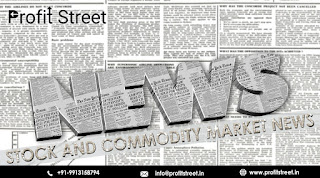Stock market closes at 4th straight record after Yellen testimony
 U.S. stocks notched a fourth straight record close Tuesday with a rally in banks after Federal Reserve Chairwoman Janet Yellen signaled that the central bank could gradually raise interest rates sooner rather than later.During Yellen’s testimony before the Senate Banking Committee, stocks flipped between small gains and losses but started carving out fresh intraday highs as the testimony wrapped up, adding to three straight days of record closes for the Dow industrials, S&P 500 and the Nasdaq.
U.S. stocks notched a fourth straight record close Tuesday with a rally in banks after Federal Reserve Chairwoman Janet Yellen signaled that the central bank could gradually raise interest rates sooner rather than later.During Yellen’s testimony before the Senate Banking Committee, stocks flipped between small gains and losses but started carving out fresh intraday highs as the testimony wrapped up, adding to three straight days of record closes for the Dow industrials, S&P 500 and the Nasdaq.
The S&P 500 index SPX, +0.40% finished up 9.33 points, or 0.4%, at a record 2,337.58, with financials and health-care stocks leading the gains. The financials sector has rallied more than 20% since the November election, and 4.2% this month alone. Bank stocks jumped after Yellen’s comments on interest rates, while rate-sensitive sectors such as utilities and real estate slumped.
The Dow Jones Industrial Average DJIA, +0.45% gained 92.25 points, or 0.5%, to close at a record 20,504.41, with 23 of the 30 blue-chip components trading higher. Shares of Goldman Sachs Group Inc GS, +1.30% closed at a record $249.92, with a 1.3% gain. J.P. Morgan Chase & Co JPM, +1.60% led gainers with a 1.6% rise.
The Nasdaq Composite Index COMP, +0.32% rose 18.62 points, or 0.3%, to close at a record 5,782.57.Some market participants read Yellen’s reference to the Fed raising rates at “upcoming meetings” as indicating that an increase of benchmark rates at the Fed’s March meeting, which Wall Street has been pricing in as unlikely, is still on the table. Central bank officials last lifted the Fed-funds rate in December to a range between 0.50% and 0.75%.
“It appears that [Yellen] is priming the market to expect two or three rate hikes, which has been reflected in higher moves in financials and bond yields,” said Ryan Larson, head of equity trading at RBC Global Asset Management.
Larson also noted the Fed has some degree of hesitation regarding what the fiscal stimulus will look like.
Read: ‘Fed Up’ exposes the elite rot inside the Federal ReserveStill, there are those who doubt the Fed’s conviction to hike in March.
“The Fed is going to be reactive [rather] than proactive, so we don’t expect the first rate hike this year until May or June,” said Wouter Sturkenboom, senior investment strategist at Russell Investments.
Fed member forecasts for rates suggest that the central bank will raise rates three times in 2017, but the market isn’t expecting an increase before the Federal Open Market Committee’s June meeting, according to CME Group data.
While Yellen’s testimony didn't detract from earlier statements from the central bank, the door is still open for a March rate hike to stick to the Fed’s target of three increases this year, said Mark Kepner, managing director of sales and trading at Themis Trading, in an interview.
“There was a little shift that there could be one in March,” Kepner said. “The market is not strongly considering it, but expectations have nudged up a little bit. The Fed originally said three [rate hikes] so March could be a swing month, but you still have economic numbers and the jobs report and maybe some clarification on tax policies before then.”
See: Live blog recap of Yellen’s testimony Richmond Fed President Jeffrey Lacker, who is isn’t a voting member of the Federal Open Market Committee, said Tuesday that almost all policy rules are recommending higher interest rates.
Treasury yields, which are sensitive to shifting rate-hike expectations, jumped on Yellen’s comments but have walked back a bit. The 10-year Treasury note TMUBMUSD10Y, +0.36% advanced 3.4 basis points to 2.469%, compared with 2.434% late Monday in New York. Bond yields rise as prices fall, and investors tend to unload bonds in a rising interest-rate environment in anticipation of being able to repurchase government bonds at higher rates in the future.
Read: As euphoria overruns Wall Street, one bank sees S&P 500 at 3,000 by 2019
On the data front, the National Federation of Independent Business’s small-business index for January maintained its postelection surge as business owners remained optimistic about better economic prospects under President Donald Trump’s administration. The Producer Price Index for January jumped by 0.6%, the largest rise since 2012, suggesting inflation may be heating up.
Stocks to watch: More than 10% of companies on the S&P 500 reached 52-week highs, and shares of Apple Inc. AAPL, +1.30% closed at a record for a second day in a row. In addition to shares of J.P. Morgan and Goldman Sachs, shares of Cisco Systems Inc. CSCO, +1.06% Bank of America Corp. BAC, +2.82% Costco Wholesale Corp. COST, +0.97% Morgan Stanley MS, +1.72% American Express Co. AXP, +0.63% and Kraft Heinz Co. KHC, +0.25% all touched 52-week highs. Outside of the S&P 500, shares of Tesla Inc. TSLA, +0.14% were not only at a 52-week high but a few dollars away from their all-time high set in September 2014.Molson Coors Brewing Co. TAP, +3.42% shares closed up 3.5% after earnings results.
Cigna Corp. CI, +0.57% shares closed up 0.6% after the health insurer said it terminated its merger agreement with Anthem Inc. ANTM, -0.12% and would expand its share buyback program by $3.7 billion. Anthem shares fell 0.1%.
Shares of General Motors Co. GM, +4.84% rallied 4.8% after the owner of French car maker Peugeot UG, +4.32% the PSA Group, said it is in talks with GM to buy its Opel brand. Shares of Peugeot jumped 3.7% in Paris.
Shares of Mattel, Inc. MAT, +0.63% closed up 0.6% after news that the toy maker will team up with Alibaba to develop and sell new products for Chinese consumers through Tmall.com.Shares of GigPeak Inc. GIG, +12.55% finished up nearly 13% after IDT Inc. IDTI, +0.61% said late Monday it would buy the communications and video-chip maker in an all-cash $250 million deal.



Comments
Post a Comment